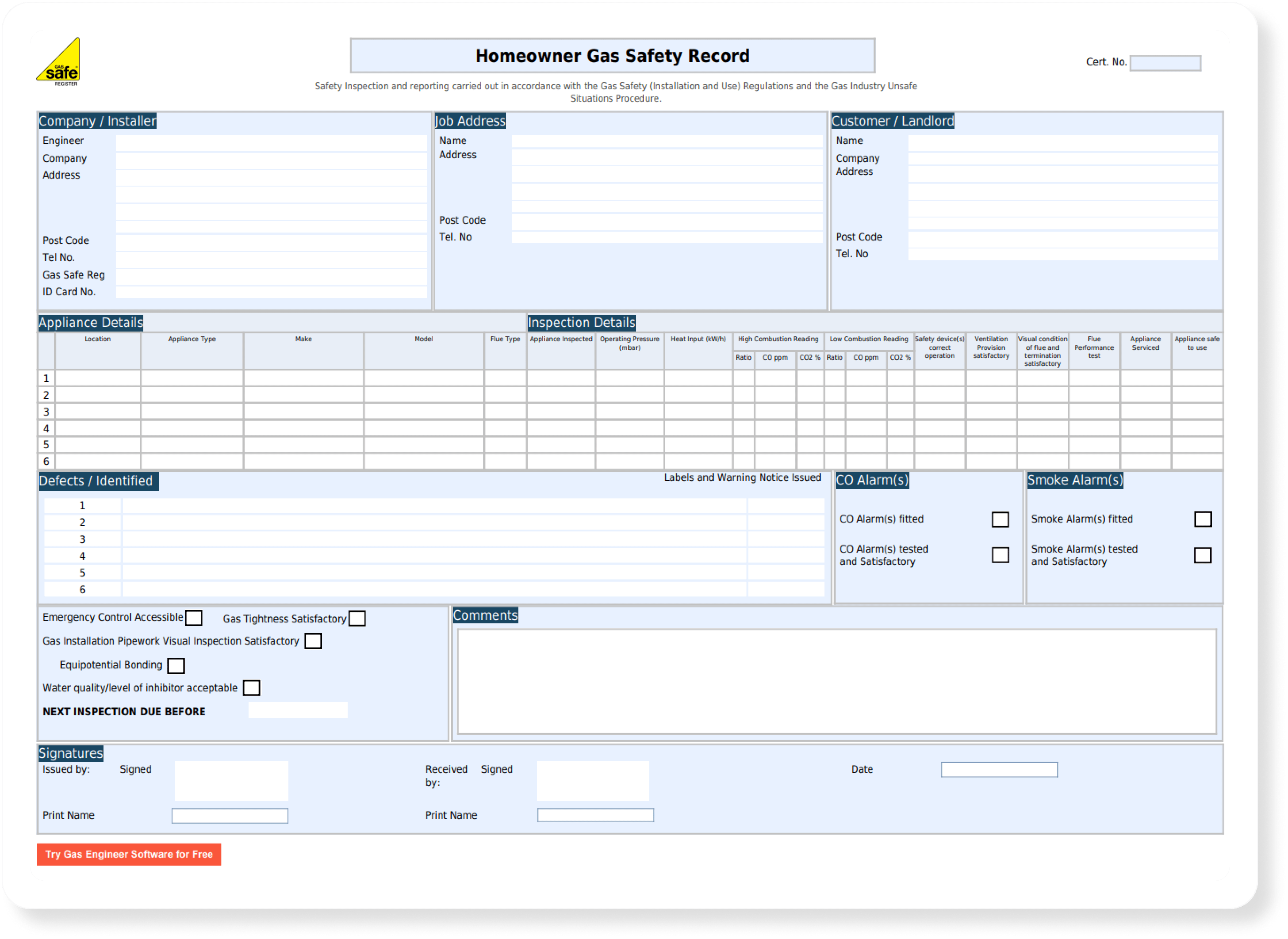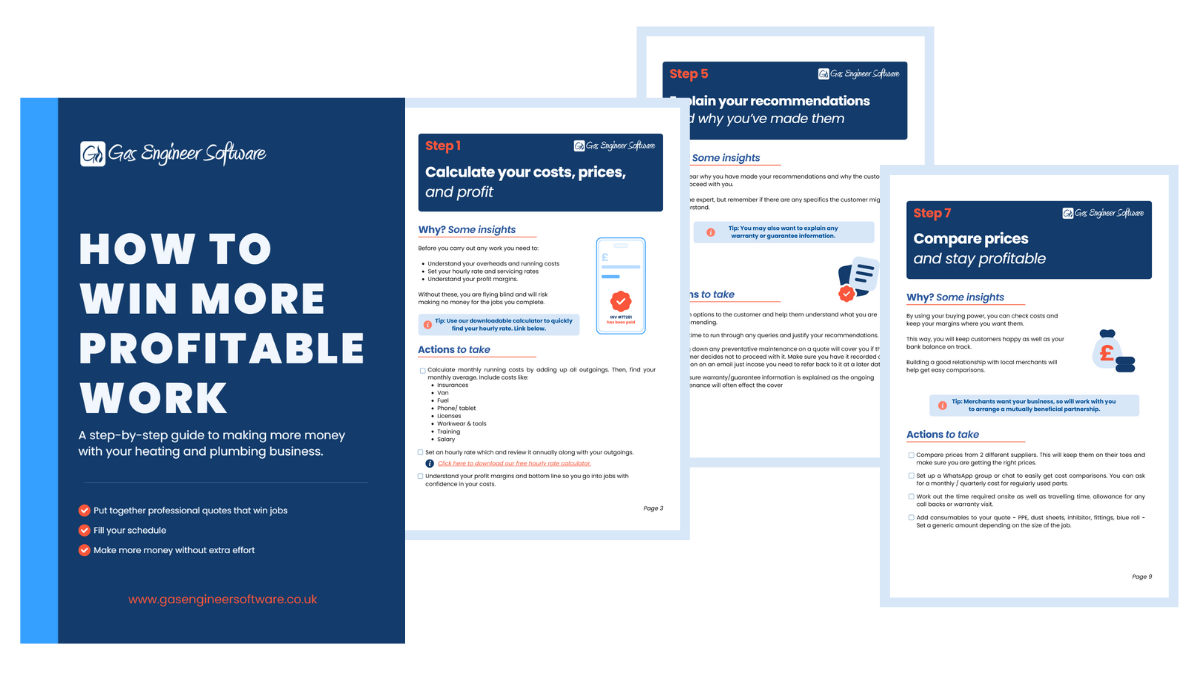How to Get More Jobs: A Guide For Heating & Plumbing Businesses

Even the best gas engineers can struggle to run their own business successfully, and it’s often down to finding enough jobs (and pricing them correctly).
Loyal, long-time customers and word-of-mouth referrals are always ideal, but they’re rarely enough to grow a business on their own. Finding your own golden formula for marketing seems complex from the outside, but it’s simply trial and error finding the methods that get you work and gel with your workflow.
This guide hopes to be a source of marketing inspiration for all those that have just gone self-employed, are thinking about hiring a new engineer, or simply want to grow the business.
Keep reading to see all the major ways you can find jobs for your business or jump ahead here:
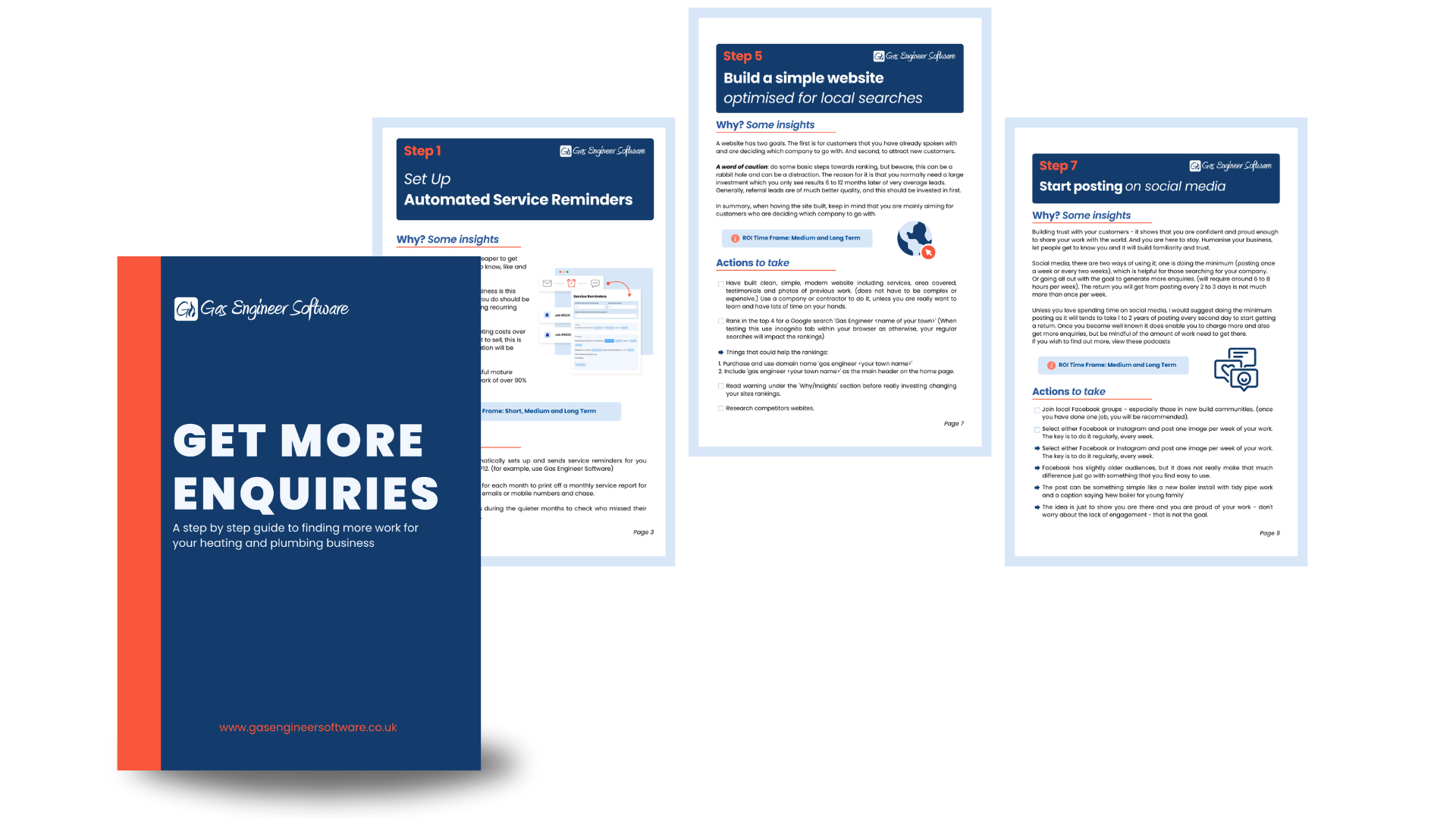
For your customers to find you, you need to first find them
Marketing is a broad term that can be used to cover many different ways of finding work.
The ultimate goal of any marketing you do is to put your services in front of potential customers.
To break things down, we’ll group all these different strategies into 3 categories:
Customer satisfaction
Digital marketing
Offline marketing
All of these are effective ways of getting more enquiries, and you’ll need a combination of them all to be truly successful. Let’s start with the first one: customer satisfaction.
Customer satisfaction
(How happy customers help get you more enquiries)
Happy customers are one of your best marketing tools. Everyone in the trades bangs on about word-of-mouth referrals and recommendations – and they’re right! There’s perhaps no better way of getting a job than having one of your loyal customers recommend you.
But don’t think this is something out of your hands. There’s lots you can do to go the extra mile and create life-long customers that champion your brand.
1. Return customer calls
In many cases, a job isn’t just won on price but who answers the phone first.
Customers who feel like they’re trying to give you work but are getting ignored will be quick to look elsewhere — especially with it being so easy to find a different company online.
From your side, it’s hard fixing boilers and answering calls. There are no easy answers for this as a sole trader, apart from making an active effort to return calls. You could also try scheduling a couple of time slots each day to return calls.
2. Ask for reviews
Reviews are an incredibly effective and underrated marketing tool in the trades world. 93% of people admit that online reviews have affected their buying decisions.
We recommend you try and encourage your customers to leave reviews after a job. Many are happy to do so, but simply forget. For prospective customers, a good review can help build confidence in your business and ultimately be what gets them to ring up.
As an example, here are Gas Engineer Software’s reviews on the Apple App Store:
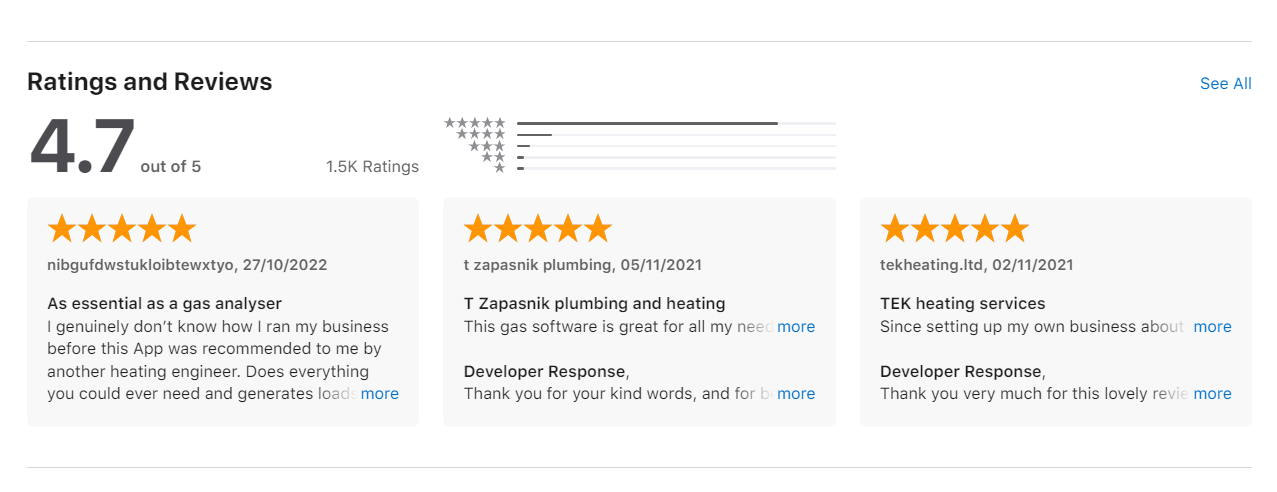
This is known as review marketing and helps build up trust in your brand and can convince customers to work with you.
Some interesting facts about reviews:
- A 5/5 rating isn’t necessarily better than a near perfect score. To customers, it suggests there are too few reviews for an accurate rating or something suspicious is going on.
- The trades industry is one of the 3 most reliant on reviews.
- 88% of customers are likely to use a business that responds to reviews, but only 42% if they do not.
- 38% of customers believe a 4 star rating is the bare minimum.
3. Decide on your unique selling points
If you want happy customers, you need to provide a good service that your customers want.
No heating and plumbing business is the same. By working out your unique combination of unique selling points, you can find out what makes your business special. And, if you can stand out and be different from other companies, then all you have to do is make sure the customer has no reason to look elsewhere.
Other companies will have USPs similar to yours, but what will be unique is the combination of the three you select in your area.
Here are some example unique selling points:
- Reliable
- Emergency Response
- Trustworthy and Approachable
- Great Customer Service
- Careful and Attentive
- Preventative Maintenance
- Offer out-of-hours emergency work
- Honest Pricing
- Brand Knowledge
4. Send service reminders
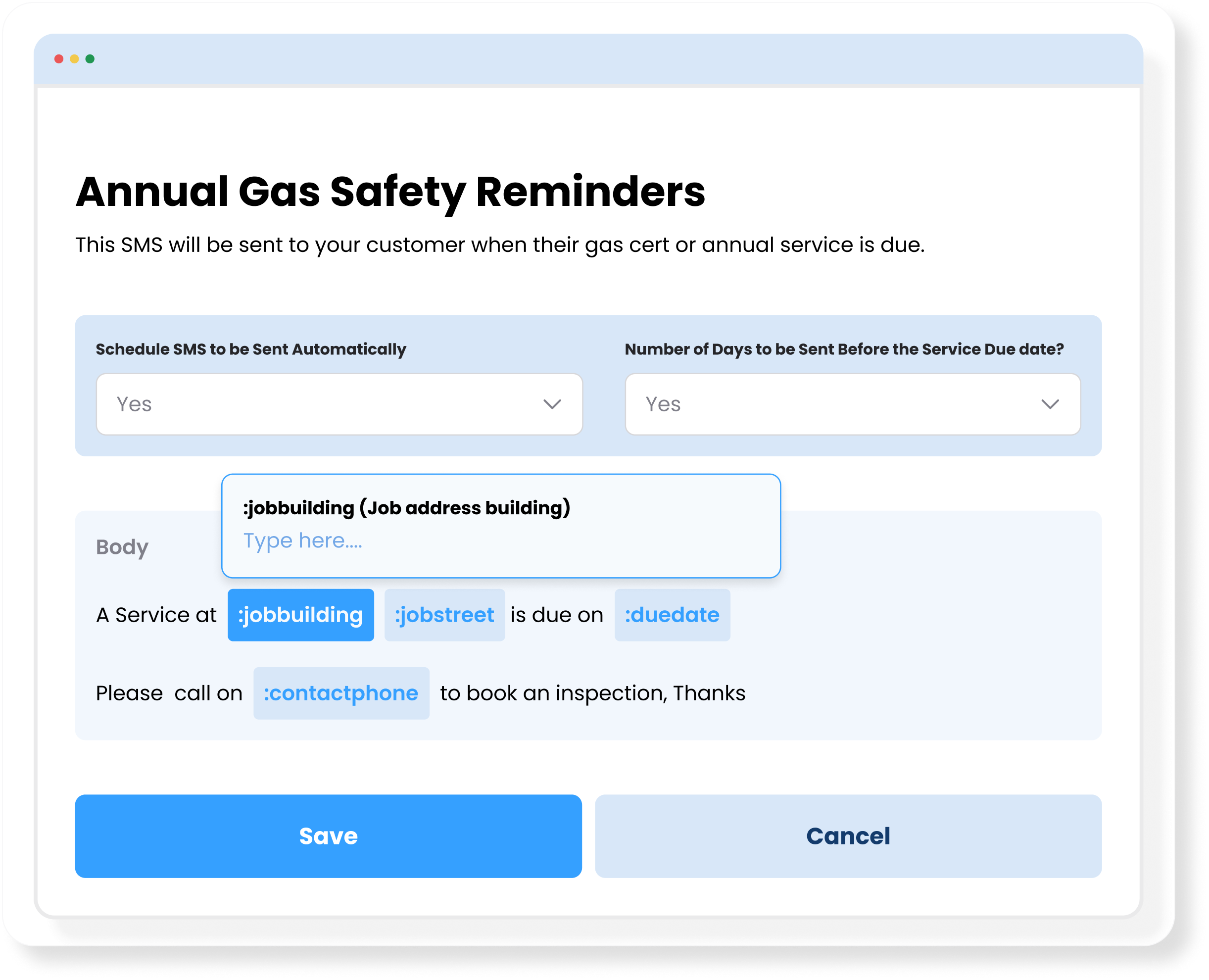
It’s always easier and cheaper to get work from customers who know, like, and trust you.
In fact, the real value in your business is this repeat work; everything you do should be working towards increasing recurring revenue.
This will lower your marketing costs over time, and if you ever want to sell, this is what your business valuation will be mainly based on. The most successful mature companies will get about 90% of their work from existing customers.
Service reminders can be completely automated with tools like Gas Engineer Software – read more about that here.
Digital marketing
(Everything you can do online to get more work)
Social media
In the UK, people spend an average of 1.56 hours a day on social media. The past decade has seen social media spiral in popularity. It’s now one of the most effective ways to humanise your business and find extra customers.
Facebook, Instagram, and TikTok are three of the most popular in the UK, and all offer great opportunities for heating & plumbing business owners. You can post as much or as little as you would like. Even a few posts a month can help, but posting every 1-2 days can help you grow an online following and get a significant amount of enquiries.
Here’s what you can do on social media:
- Post regularly to build a following. Primarily, this is a way for you to build your authority as a professional and spread brand awareness for those who stumble across your account. This will cost you nothing and can be very effective if you play the algorithm’s game (how these platforms decide which content goes viral).
- Join Facebook groups of any local area you want to service. People often use these groups to find tradespeople like gas engineers and ask for recommendations. This is another cost-free and great way to find more customers and, again, is totally free.
- Run advertisements. Setting an appropriate budget, social media ads can be used to attract more jobs. All social media platforms offer a range of advertising options which can be cleverly targeted to your ideal customers.
Here’s an example from Ryan Mills who runs G.D. Mills up in Edinburgh:
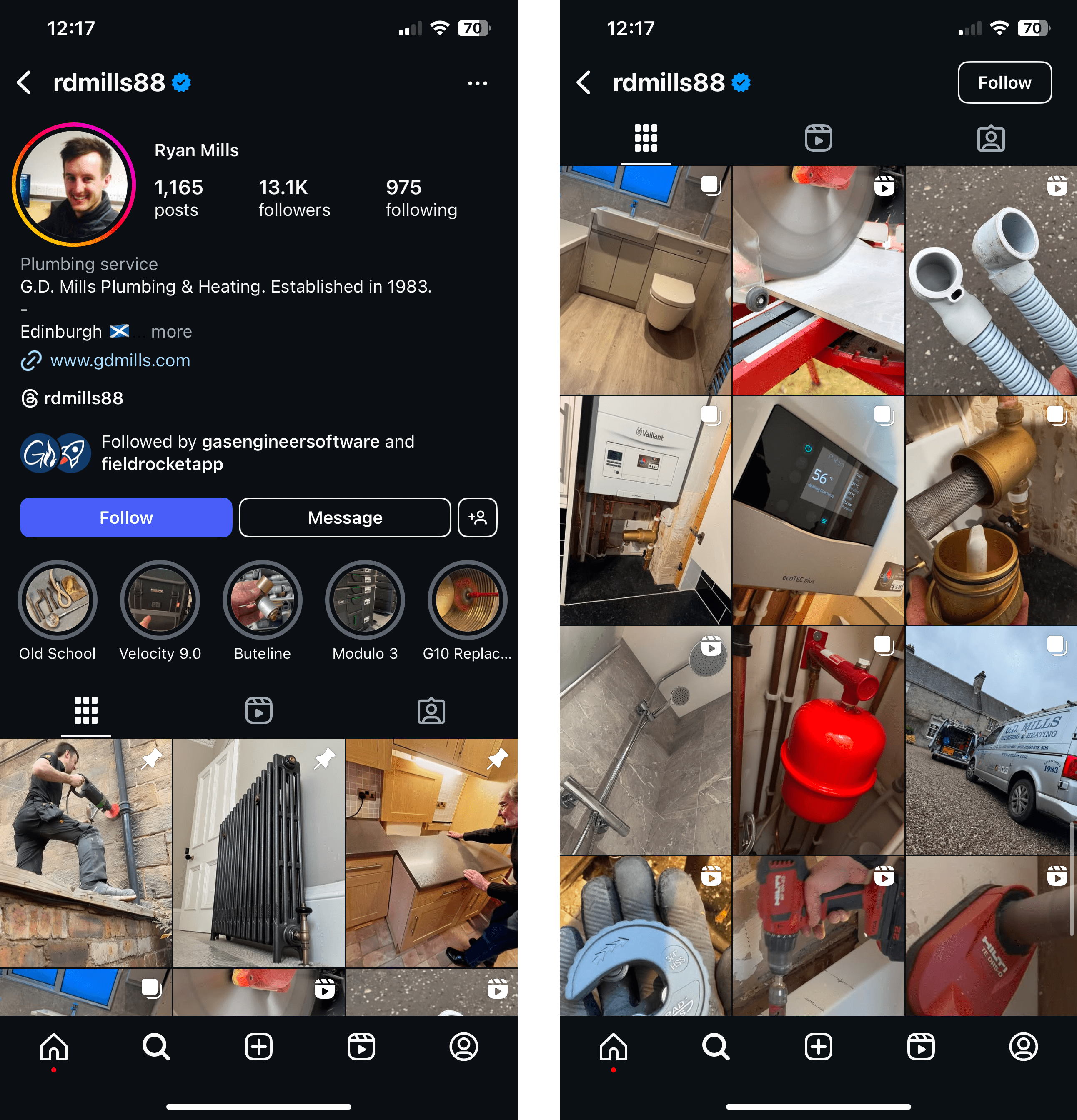
Your Google Business Profile
Here’s an example of Waitrose’s Google Business Profile:
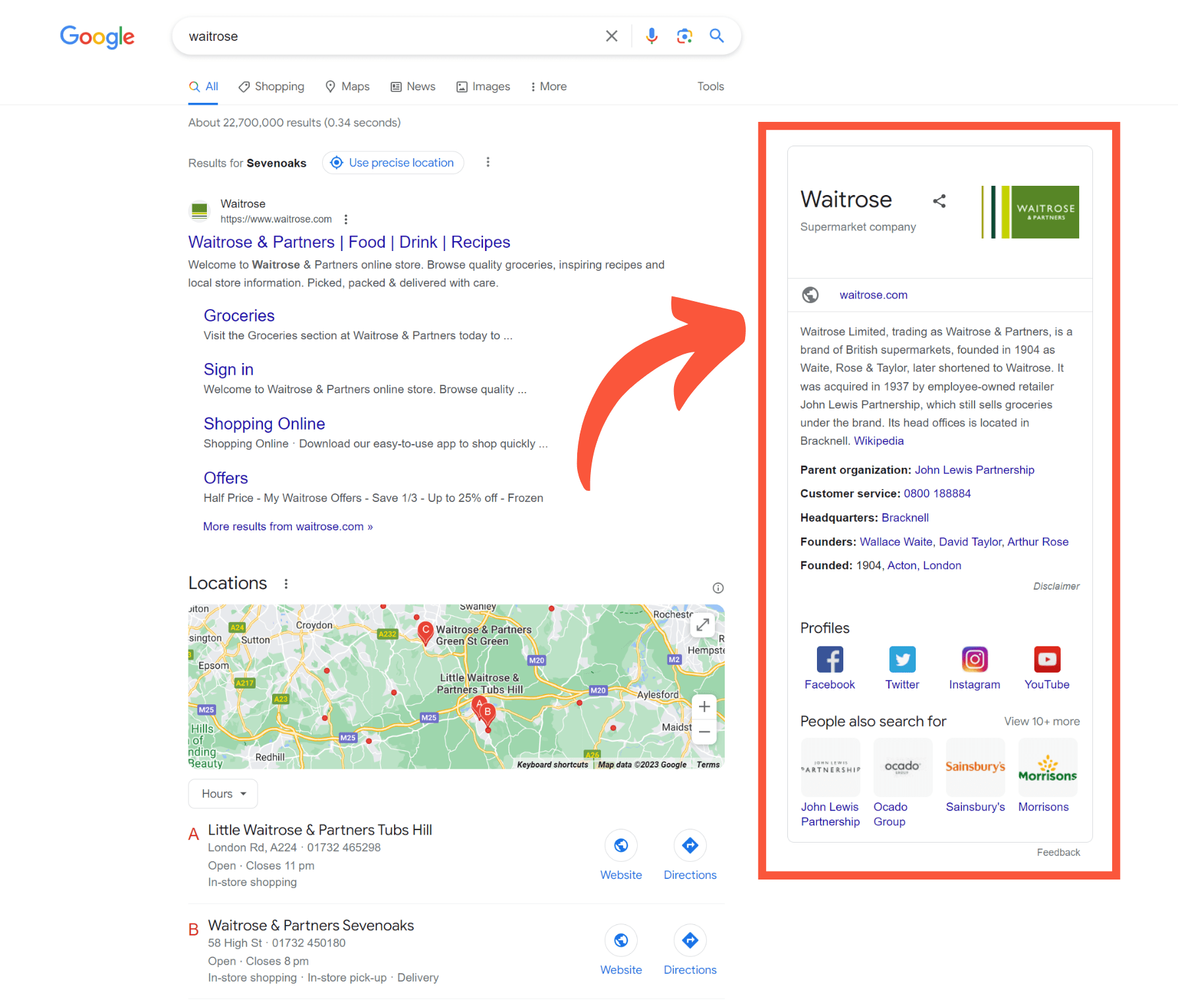
Your business website
Your website has two goals:
- To tell people what you want them to know about your company (such as what services you offer and where you’re based)
- To generate new enquiries and customers.
Investing in a clean and simple website will maximise the odds of a customer finding your business.
Remember to use your USP’s (unique selling points) to stand out from the crowd and encourage more enquiries.
Here are some things you should include on your website:
- A contact page, with all relevant contact information including:
- Phone numbers
- Email addresses
- Physical addresses
- A services page that talks about what kind of jobs you do.
- An about us page that talks a bit about your business, its history, etc.
- A pricing page that details your current rates.
- A page for testimonials and/or case studies.
- And of course an appealing home page.
What about search engine optimisation (SEO)?
You could go deep into the world of SEO, but we would recommend simply creating a few detailed and well-written pages to start like the ones we listed above.
As you’re creating these pages, think about using certain keywords to help attract relevant website traffic (people that might actually ring you up). Some examples include:
- gas engineer [your town/city/region]
- best gas engineer [your town/city/region]
- heating and plumbing company [your town/city/region]
- boiler service [your town/city/region]
For example, if you operated around Sevenoaks, you might want to write sentences like:
“We’re a family-run heating and plumbing company based in Sevenoaks. We do boiler servicing and installations in Sevenoaks, Tonbridge, Tunbridge Wells, and all nearby areas.”
People in these areas looking for an engineer will type these kind of things into Google, who can then help guide them to your website.
Online directories
Often for a small fee, you’ll be able to get your details listed in the very same place that customers go to find tradespeople (like gas engineers).
Google Ads
Here’s an example for when we searched for “gas engineer sevenoaks”:
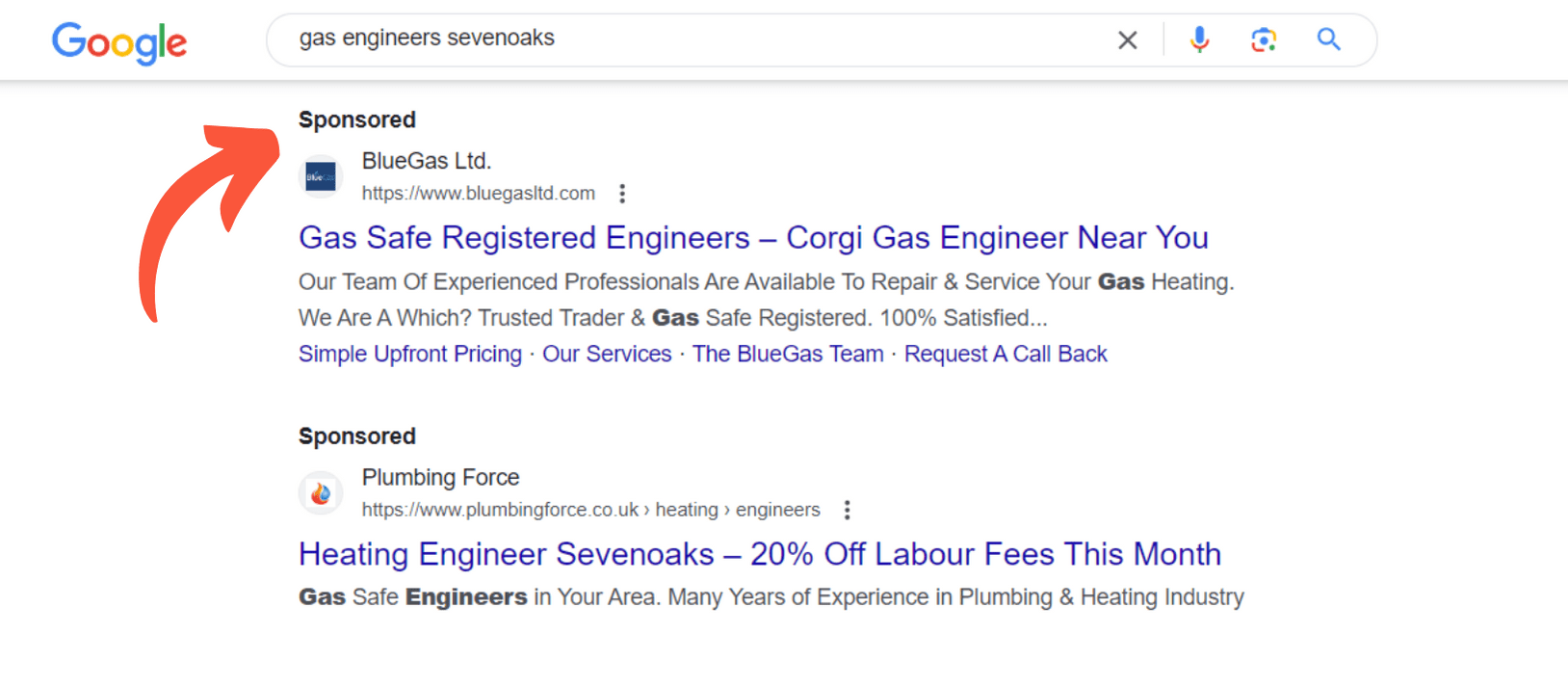
While there are plenty of other search engines, Google is by far the biggest (used by almost 94% of us in the UK) and therefore should be your first priority.
Email marketing
Over the years as you work with more and more customers, you should be accumulating a database of customer details. Sending out marketing emails can help you re-engage with customers who haven’t worked with you in some time and may need some heating or plumbing work done.
A great example of email marketing is sending out a simple yearly boiler service reminder. Customers are usually keen to service their boilers once a year, and landlords have a legal obligation to do so.
Automated reminders are a great option if you use an app like Gas Engineer Software
Customer Relationship Management (CRM) software
Ringing them up and seeing if there’s anything you can do to help them out is an excellent method to turn these leads into booked jobs. If not – you can scratch them off your list.
Offline marketing
(Everything you can do in the real world to get more work)
Leaflets/flyers
When we spoke to Luke from Blue Bulldog Heating & Plumbing, he mentioned that flyers were an early successful marketing strategy for him:
“One of the jobs I did today – I was like, hey, where did you get my number? He had one of my old leaflets on his fridge from when I first started. He has kept it all this time.”
Vehicle advertising
The best part about it is that you only have to do it once, and you’re good to go for years to come.
Front garden signs
Referrals & word of mouth
Richie Basquine from RJ Heating said his best piece of advice is “just try to do a good job and hope for word of mouth”.
There’s a few reasons for this:
- They’re completely free
- You don’t really have to do anything extra
- It’s extremely effective
Referrals are all about turning your customers into your advocates, and keeping them happy. You’ll want to make sure you focus on quality work and offering a professional service, but also think about how you can go the extra mile for them.
Boiler stickers
Stickers are easy to get printed off, and the design need be nothing more than your logo and contact details. The only other thing you’ve got to do is stick them onto any boiler you work on, whether its an installation or a service.
The whole idea of boiler stickers is to remind your customers of your business when they need you the most.
Most people aren’t interested in boilers and only look at them when there’s a problem. And if they have a problem, they’ll probably need your help… you can see how these stickers then come in handy and get a bunch more repeat work from previous customers.
Business cards
We’d always recommend you hand out a business card after you finish a job – especially for new customers. You never know when they might have a friend, neighbour, colleague, or family member in the local area who needs a gas engineer, and they can simply pass your card around.
Branded radiator keys
Few customers have their own radiator keys, yet they can be useful at times. If you make a bunch of branded radiator keys, you can leave them behind at your customer’s properties.
When they do need one, they’ll find yours – with your company and contact details visible. It’s a cheap and effective way of marketing unique to gas engineers that also carries a bit of goodwill with it.
Our final takeaway
The whole process of marketing and finding jobs for your business isn’t a one-strategy game. Successful heating & plumbing businesses will be employing several of these strategies at the same time to create their own unique marketing system.
More often than not, a customer needs to “see” or “interact” with a brand several times for them to follow through and book a job. This could mean finding your ad on Google, then your website, and then reading some reviews – although each journey is different.
Scaling a business with Gas Engineer Software
One of the benefits of an all-in-one job management solution like Gas Engineer Software is that it’s designed to grow alongside your business. Simply add new users as and when you make a hire – it’s as simple as that.
We know that heating & plumbing business owners are notoriously strapped for time, so it’s good advice to only continue with the strategies above that are working for your company. It may take some time, but good marketing can make running your business less of a struggle and more about doing the work you love.
Next steps:
If you’ve been thinking about implementing software into your workflow to save time, here’s what you can do next:
- Visit our resources centre where you'll find more articles like this one and our free gas rate calculator.
- Start a free trial to see exactly how our software works for your business.
- Watch our video demo to get an idea of how our software works. You can also book a 1-on-1 session with our customer success team for a more personalised experience.
- Know an engineer who's still using paper? Help them and us out by sending our software their way!
